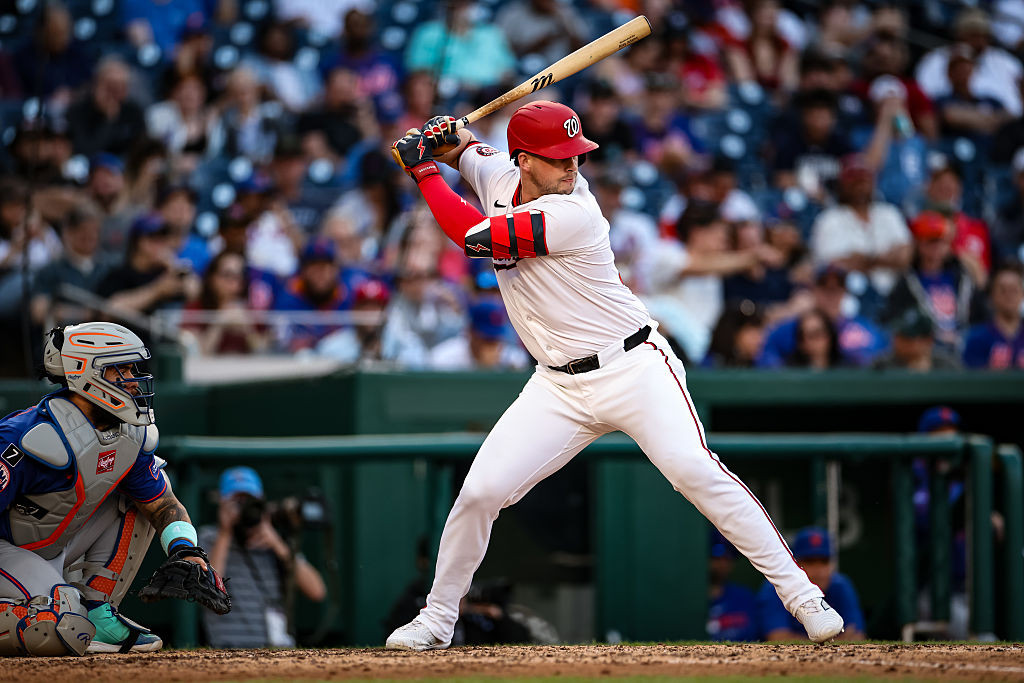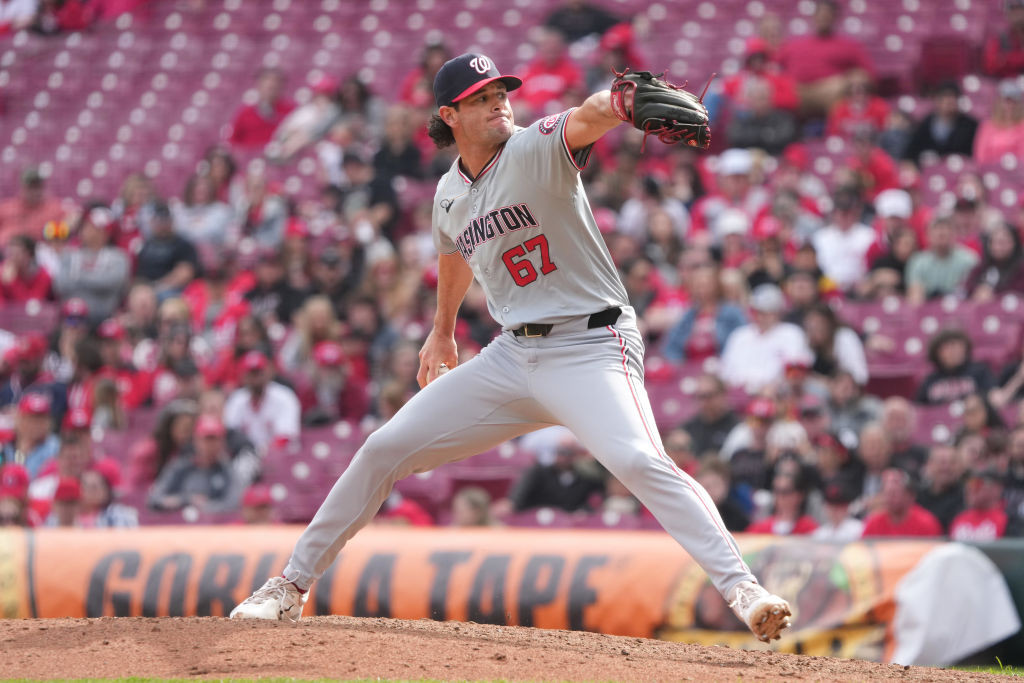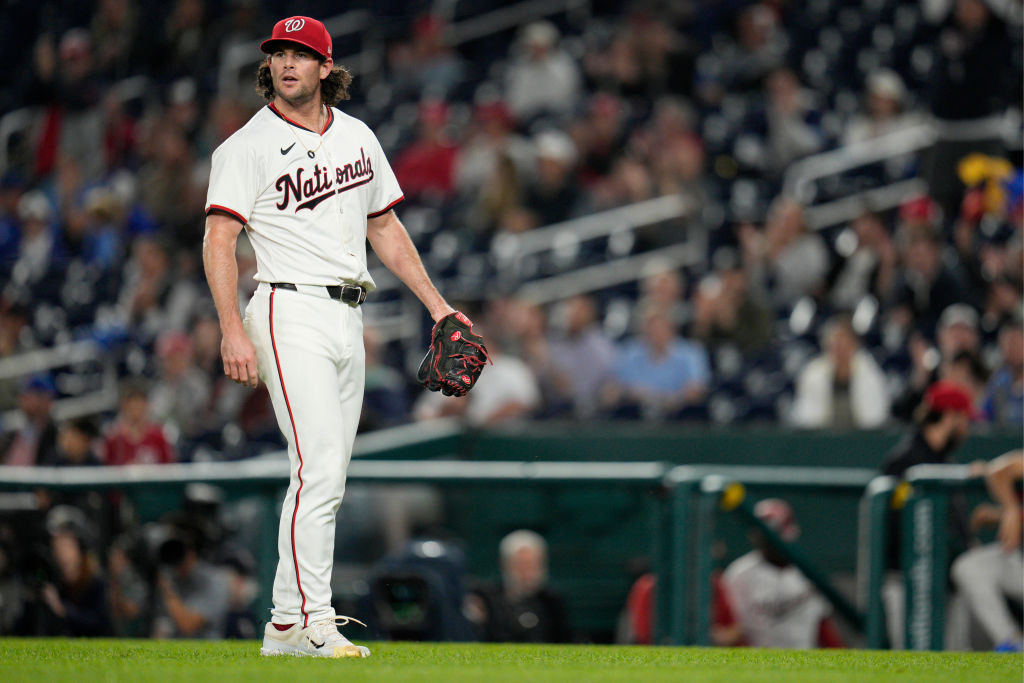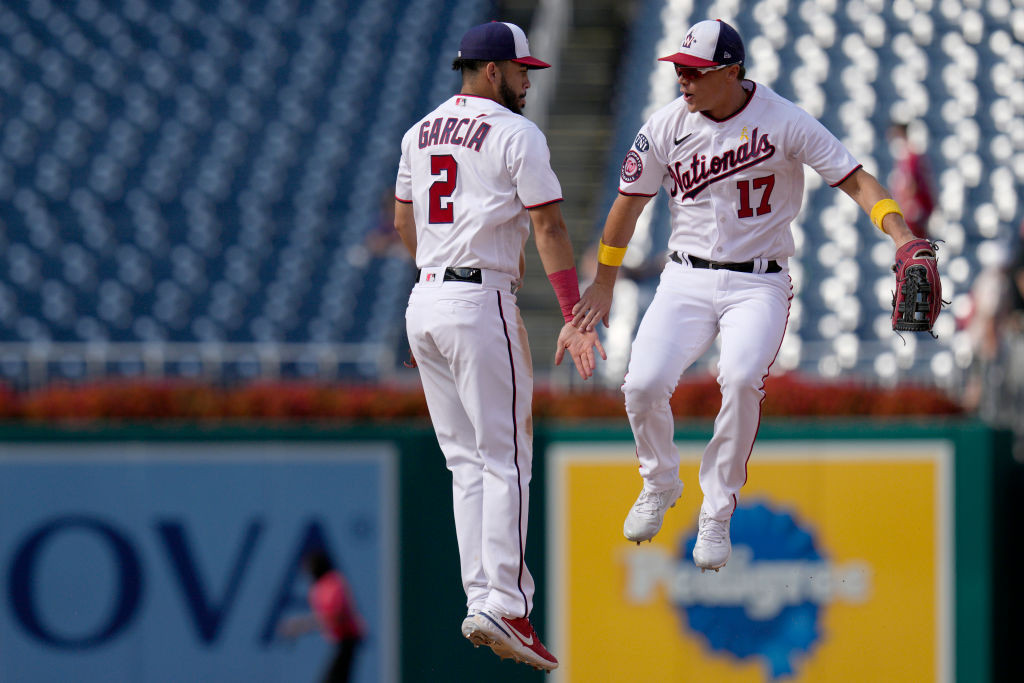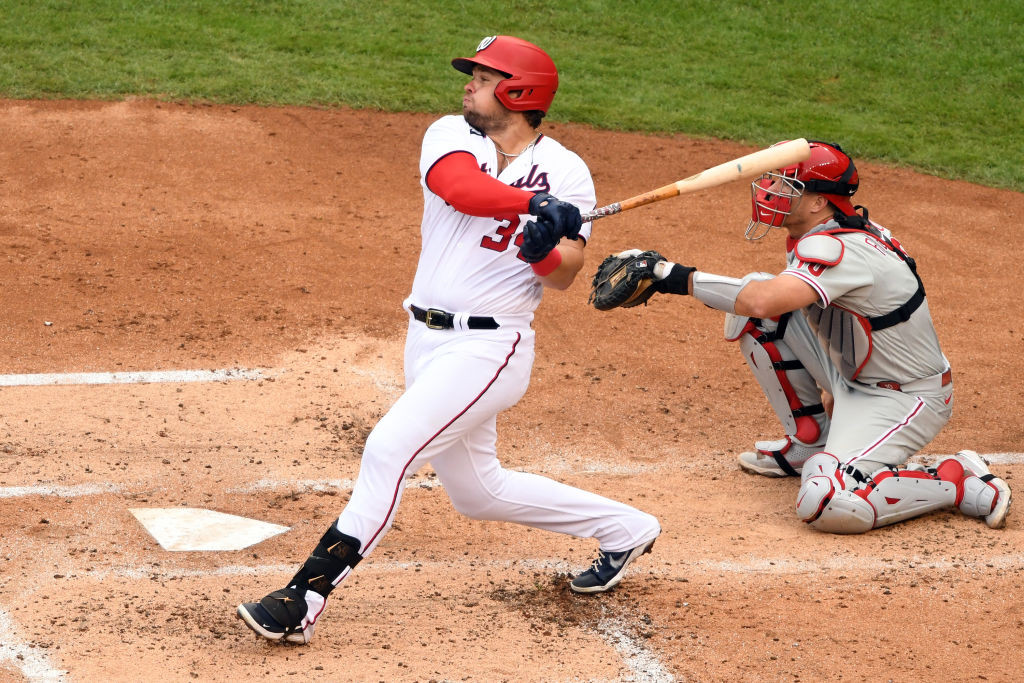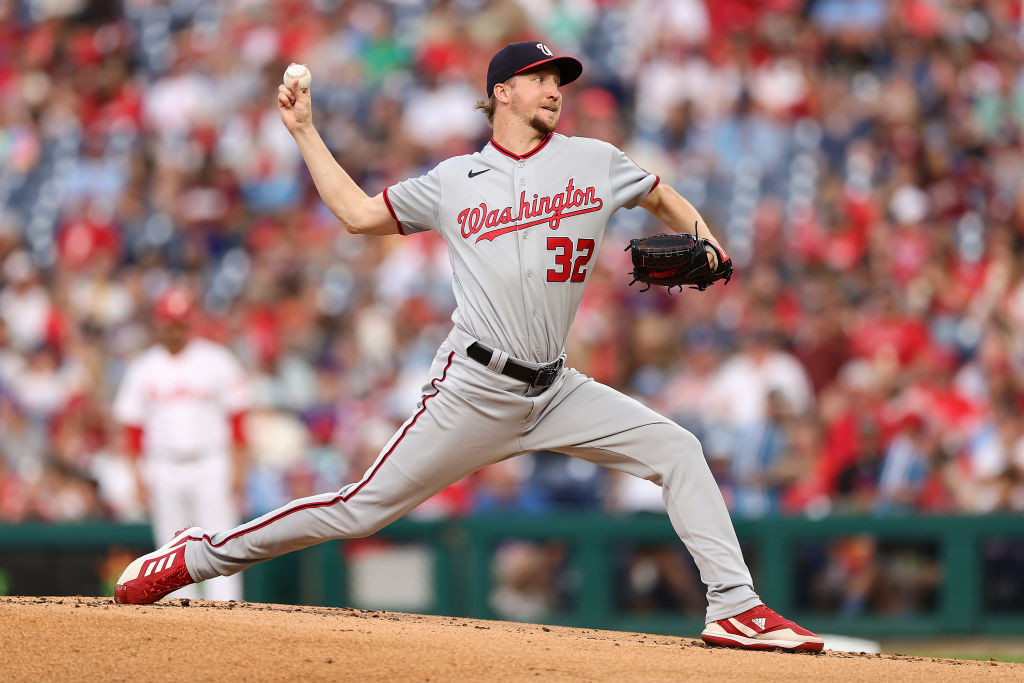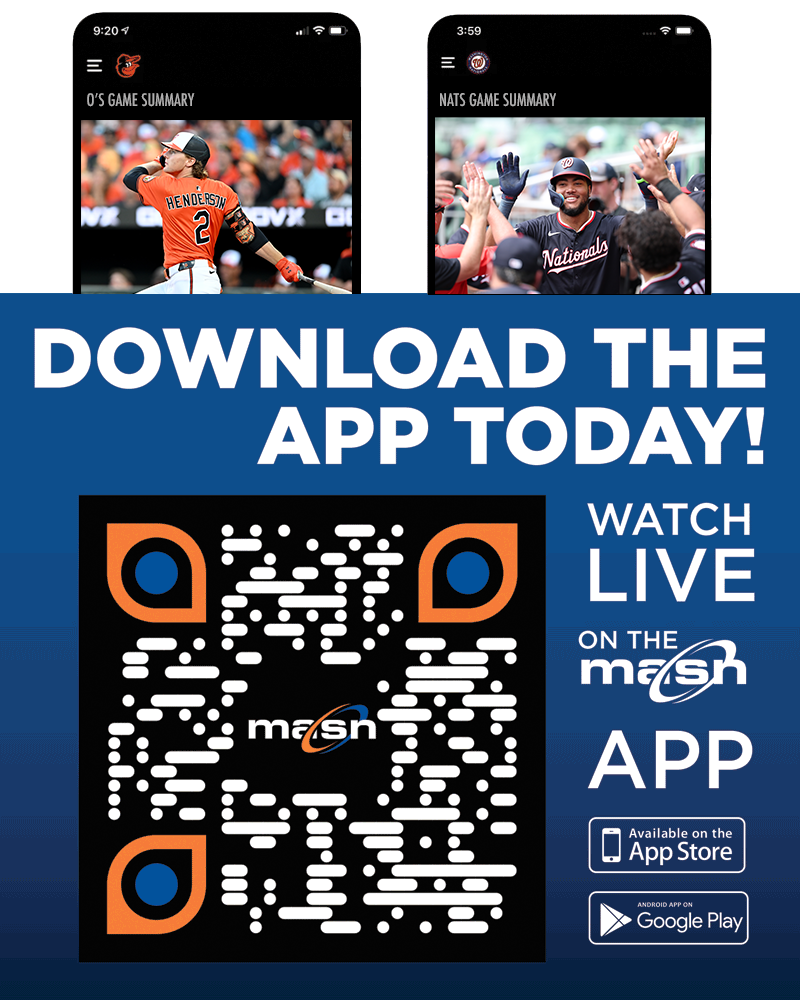The first major decision made by Paul Toboni and his new Nationals front office: To retain all of the players currently under club control for now.
The Nats tendered contracts to all of their unsigned 40-man roster players before this evening’s deadline, opting to keep all seven of their arbitration-eligible players. Infielders Luis García Jr. and CJ Abrams, left-hander MacKenzie Gore and right-handers Jake Irvin, Josiah Gray and Cade Cavalli all were tendered, with their salaries to be determined at a later date (either by agreeing to terms with the club or filing for arbitration).
Catcher Riley Adams, meanwhile, not only was tendered a contract but already agreed to terms on his 2026 salary, avoiding arbitration, the team announced. Figures were not revealed, but Adams made $850,000 this season and was projected to receive a raise up to about $1.5 million via arbitration.
Though these moves don’t necessarily guarantee all of the above players will be part of the 2026 roster, they do suggest Toboni and his newly assembled team at least are willing to pay all of them what they could command in arbitration, barring any trades this winter.
That’s particularly notable for García, Irvin and Adams, who appeared to be the most likely of the group who could’ve been non-tendered, essentially getting released and becoming free agents.
Thanksgiving is four days away, officially kicking off the holiday season. It also may kick off a busier time for the Hot Stove season.
It has been predictably quiet around the league since the World Series ended a month ago. But we’re now two weeks away from the start of the Winter Meetings, with many around the industry already anticipating a busy week in Dallas.
No, that doesn’t mean they think Juan Soto will announce his decision. It’s more that they think some mid-to-upper-level free agents will come off the board and a couple of teams could execute some trades.
Where does that leave the Nationals?
Their free agent needs and targets have been well documented, while the free agent pool grew after Friday’s non-tender deadline. Their farm system is stacked if they wish to acquire major league talent through a trade. But could they go the opposite route and flip a current big leaguer for more prospects to add to their minor league depth?
The Nationals surprisingly parted ways with Kyle Finnegan tonight, choosing not to tender a contract to their All-Star closer four months after turning down trade offers for him.
The club also non-tendered reliever Tanner Rainey, the last remaining active member of the 2019 World Series roster, before this evening’s leaguewide 8 p.m. deadline.
Five other unsigned arbitration-eligible players were tendered contracts: Second baseman Luis García Jr., catcher Riley Adams, left-hander MacKenzie Gore and right-handers Josiah Gray and Derek Law. Reliever Mason Thompson, who missed the entire season following Tommy John surgery, already agreed to terms on a one-year contract with the team Thursday evening.
The decision to let Finnegan become a free agent with one year left of club control was unexpected, especially after general manager Mike Rizzo opted not to accept offers for him at the July 30 trade deadline while dealing setup men Hunter Harvey and Dylan Floro for prospects. In non-tendering him now, the Nationals receive nothing in return for a proven late-inning reliever who ranked second in the National League this season with 38 saves.
Finnegan’s late-season struggles, though, may have changed some club officials’ minds about him. Owner of a 1.98 ERA on July 4 (shortly before he was named an All-Star for the first time), he saw that number skyrocket to 5.93 over his final 28 appearances, leaving his season-ending mark a pedestrian 3.68. That marked four straight years in which he finished with an ERA between 3.51 and 3.76.
Baseball’s second significant roster deadline of the week comes this evening, when teams are required to tender contracts to all players on the 40-man roster who aren’t already signed for the upcoming season.
Tendering a contract doesn’t mean actually agreeing to a 2024 salary. That process can still take place over the next two months, with any cases that aren’t settled ultimately heading to arbitration. This first step merely involves a team indicating its intention to sign a player for another season.
And the vast majority of these cases are cut-and-dried. Almost everyone involved in this process will have his contract tendered by the end of the day. Anyone who doesn’t get tendered … well, that’s the real newsworthy event.
Dozens of players across the sport get “non-tendered” every year on this date. Most are arbitration-eligible and due to earn more money via standard raises than the club is willing to pay after disappointing performances, making them free agents who can then sign anywhere they like.
The Nationals used this to their advantage last winter. They not only non-tendered Luke Voit, Erick Fedde and Tommy Romero, they wound up signing two players who were non-tendered by other clubs: Jemier Candelario and Dominic Smith.
The Nationals parted ways with Luke Voit, Erick Fedde and Tommy Romero this evening, electing not to tender contracts to one of the players they acquired in this summer’s blockbuster trade with the Padres and their 2014 first-round pick after underwhelming seasons.
The club did tender contracts before tonight’s 8 p.m. deadline to their seven other remaining arbitration-eligible players: Lane Thomas, Victor Robles, Kyle Finnegan, Carl Edwards Jr., Hunter Harvey, Tanner Rainey and Victor Arano.
The Nats could still choose to re-sign Voit or Fedde if either is willing to return at a salary figure lower than they would’ve received through the arbitration process, such reunions are rare for players who aren’t attempting to come back from injuries.
Voit faced an uncertain future following his arrival in Washington as the lone experienced major leaguer the Nationals received along with five highly rated prospects from San Diego for Juan Soto and Josh Bell. Though he couldn’t become a free agent until after the 2024 season, the 31-year-old wasn’t viewed as a piece to the organization’s long-term plans. And after he hit just .226/.308/.402 in 135 total games split between the two clubs, his stock fell.
With a projected salary of $8.2 million, per MLB Trade Rumors, Voit would’ve been among the Nationals’ highest-paid players next season. If he performed up to his earlier career standards, that would’ve been a bargain. But if he duplicated this year’s numbers, it would’ve felt excessive.
It’s another deadline day in the baseball world. Earlier this week, it was the deadline to add players to the 40-man roster and protect them from being lost in the Rule 5 draft. Today it’s the deadline to tender contracts to all players who are eligible for salary arbitration.
What that means: Any player with at least three years but fewer than six years of big league service time – plus the “Super 2’s” who qualified before reaching the three-year mark – will learn today whether their clubs intend to make them contract offers for 2023 or part ways and leave them as free agents.
The most notable developments every year on this date don’t have to do with the players who are tendered contracts. It’s all about who doesn’t get a contract offer, who gets non-tendered.
And in the case of the Nationals, there are a couple of tough decisions to make.
The Nats have 10 arbitration-eligible players, but infielder Ildemaro Vargas already agreed to terms on a contract for 2023 earlier this week, so he’s not a part of this discussion. The decisions on six of the other players would appear to be easy ones. The team should tender contracts to Carl Edwards Jr., Victor Robles, Tanner Rainey, Hunter Harvey, Lane Thomas and Kyle Finnegan.




-1745819772711.png)
